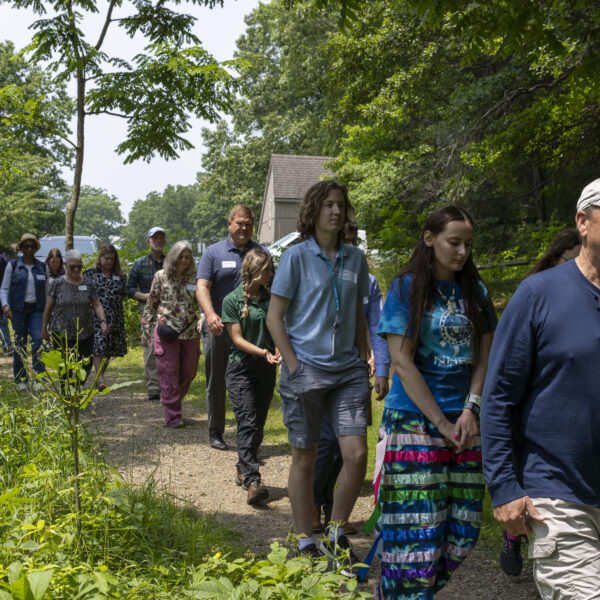Albion College Secures $65,000 Native American Heritage Fund Grant to Strengthen Indigenous Partnerships

Why the Grant Matters for Albion College
Albion College’s recent receipt of a $65,000 grant from the Native American Heritage Fund (NAHF) signals a deliberate move toward deeper collaboration with the Nottawaseppi Huron Band of the Potawatomi (NHBP). The funds will be used for culturally appropriate exhibits and co‑management plans at the campus’s Whitehouse Nature Center. This partnership is not only a financial win – it reshapes the university’s engagement with regional Indigenous history and traditions, offering students, faculty, and local residents tangible ways to learn and participate.
From Funding to Impact: The Architecture of the Grant
The NAHF grant – a component of a larger $100,000 partnership over the past two years – is focused on three pillars:
- Community‑curated displays featuring Anishinaabe artists and trail signage that communicate the intertwined histories of Albion and the Anishinaabe people.
- Co‑management of natural and cultural resources to ensure that the Whitehouse Nature Center operates in line with Indigenous stewardship principles.
- Educational output such as a new course on the archaeology of wild rice and a research tool (wigwasmkek) that blends traditional ecological knowledge with western biology.
By positioning the college as a steward of shared land, Albion fosters a learning environment that welcomes inquiry, respects tradition, and encourages interdisciplinary research.
Academic Collaboration Spanning Departments
Anthropology, sociology, and biology departments have formed a collaborative framework with the NHBP’s Environment Department and Tribal Historic Preservation Office. The joint initiative aims to:
- Create curriculum that integrates Indigenous scientific understanding.
- Support fieldwork projects that use the wigwasmkek tool to investigate the ecology of wild rice—Michigan’s state native grain.
- Produce scholarly publications that document Anishinaabe historical sites and archival records, including a 1,000‑year‑old ancestral site on campus grounds.
Students in these programs gain hands‑on experience that benefits both their academic advancement and the community’s heritage preservation efforts.
Student Engagement Opportunities
Albion College students can immerse themselves in these initiatives through the following pathways:
- Volunteer in exhibit design alongside Anishinaabe artists, learning techniques for cultural storytelling.
- Participate in field research using the wigwasmkek methodology, contributing data for the State of Michigan’s wild rice conservation plan.
- Join the Graduate Environmental Research Group for a capstone that addresses land stewardship and Indigenous rights.
- Attend the Whitehouse Nature Center’s quarterly cultural events, such as water and pipe ceremonies, fostering cross‑cultural dialogue.
These engagements help students build a portfolio that demonstrates a commitment to community‑partnered research—a quality increasingly sought after by employers and graduate schools.
Benefits for Local Communities and Indigenous Partners
Beyond academic enrichment, the grant delivers clear benefits to the NHBP and the broader Michigan community:
- Restoration of misrepresented narratives, ensuring that public displays accurately reflect Anishinaabe history.
- Increased visibility of the tribe’s environmental expertise in native grain cultivation.
- Strengthened communication networks between the college and tribal decision‑makers, aligning educational goals with community development priorities.
As Professor Alli Harnish noted, “It’s powerful to see our communities come together. We’re grateful to the NAHF for making this important work possible.”
How Prospective Students Can Capitalize on This Momentum
1. Explore the college’s Indigenous Studies and Sustainability Programs. Programs such as the Biology and Anthropology majors already incorporate shared‑management projects; check course catalogs for “wild rice archaeology” and related offerings.
2. Attend information sessions hosted by the College’s Center for Sustainability and the Environment. These sessions often feature talks by tribal partners and showcase ongoing research.
3. Submit an application with a statement of interest in community‑engaged research. Highlighting your alignment with the college’s partnership agenda can strengthen your admission packet.
4. Volunteer for local environmental initiatives. Many of the projects at Whitehouse Nature Center are open to student involvement, providing practical experience that complements coursework.
Future Directions and Strategic Vision
Albion College plans to build on its partnership by:
- Launching a dedicated research lab focused on Indigenous agricultural practices.
- Expanding the Whitehouse Nature Center’s outreach to regional K‑12 schools, with curriculum modules developed in collaboration with tribal educators.
- Seeking additional funding for immersive cultural experience programs, such as summer internships co‑led by the NHBP and university staff.
These steps position Albion as a model institution for inclusive stewardship, where higher education supports Indigenous rights and contributes to ecological resilience.
Take Action: Your Next Steps
Are you ready to experience a university that values cultural diversity and community partnership? Here’s how you can move forward:
- Apply to Albion College today and align yourself with a mission that emphasizes partnership and stewardship.
- Learn more about the Biology and Anthropology majors, including courses focused on Indigenous ecological knowledge.
- Join a campus tour that takes you through the Whitehouse Nature Center to see the new exhibits firsthand.
- Contact the college’s admissions office for a free consultation session to discuss how you can contribute to the ongoing partnership.
By engaging with Albion College now, you can participate in pioneering research, cultural preservation, and sustainability initiatives that set you apart in a competitive academic landscape.
Conclusion
The $65,000 grant from the Native American Heritage Fund is more than a financial injection; it’s a strategic commitment to respecting and amplifying Indigenous voices on Albion’s campus. Through co‑curated exhibits, shared management of natural resources, and innovative research tools, the university is carving a path that benefits students, faculty, and the wider community alike. Prospective students who seek an environment rich in cultural partnership and ecological responsibility will find Albion College ready to support their growth.

